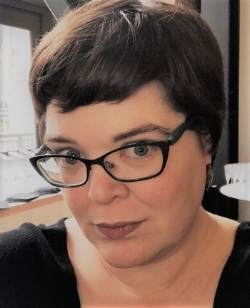Episode 127: Resilience
/“Even if his father had lived I think I still would have worked this hard, because I think it’s important first of all for me to have my own identity...but I also think it’s good for a boy to see his mother go to work.”
Dana Canedy
"Empower yourself. You will be underestimated and misunderstood. Do it anyway." Those were some of the first words I heard Dana Canedy speak at a women's careers event earlier this year. In this show I ask her to expand on that advice.
Dana was the first person in her family to go to college. She had dreamed of being a writer from childhood, and had a long career in journalism, much of it at the New York Times. But along the way she experienced terrible loss. Now she is a single mother to a 12-year-old boy and she runs the Pulitzer Prizes, the first woman and person of colour to do so. In this episode she talks about resilience, handling yourself at work, and the joy of giving back.
You can also read a transcript of the show.
Further reading: Dana's book about her relationship with Charles King, his loss and the aftermath is called A Journal for Jordan. It's being made into a movie, with Denzel Washington slated to direct.










